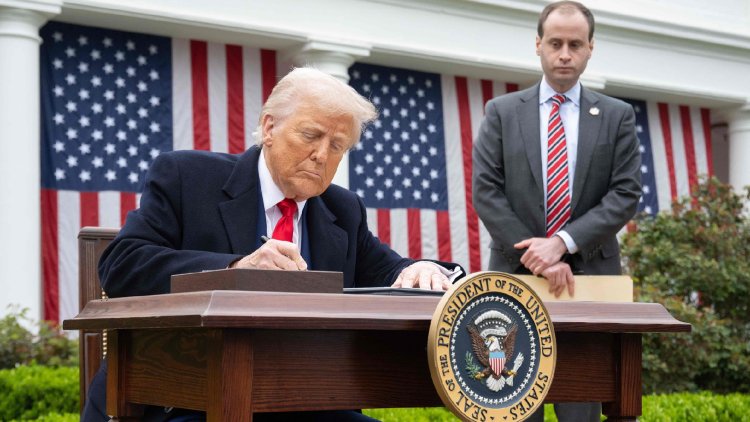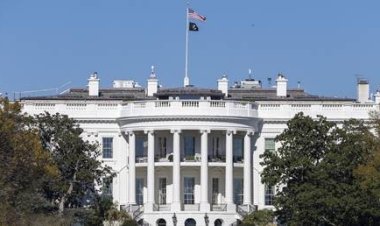Experts Say U.S. 'will shoot itself in the foot' Because of Tariff Fixation
On Wednesday, U.S. President Donald Trump signed an executive order to implement "reciprocal tariffs" on trading partners, describing the action as a "declaration of economic independence" intended to transform U.S. manufacturing and spur economic revival. However, experts caution that the U.S. may "shoot itself in the foot" because of its fixation on tariffs.

In a chart illustrating the "reciprocal tariffs," Trump listed different rates for various countries and regions.
For instance, China will incur a 34 percent tariff, the European Union 20 percent, Vietnam 46 percent, Japan 24 percent, India 26 percent, South Korea 25 percent, Thailand 36 percent, Switzerland 31 percent, Indonesia 32 percent, Malaysia 24 percent, and Cambodia 49 percent.
The introduction of these tariffs is expected to inevitably elevate domestic prices in the United States, placing additional burdens on citizens and raising costs for numerous companies. Cui Fan, a professor at the University of International Business and Economics, commented on the situation.
He expressed that Trump's reliance on outdated protectionist tariff policies from over a century ago is impractical and not feasible today.
Even after Trump imposed a 25 percent tariff on steel imports in 2018, productivity in the U.S. steel sector, measured by output per hour, has plummeted by 32 percent over the last eight years.
Research from the Federal Reserve Bank of New York has identified that tariffs have reduced U.S. economic well-being by 3 percent, adversely affecting both businesses and consumers. The steel sector, which is often highlighted as a success of Trump's tariffs, has experienced stagnant employment levels, with job numbers in 2023 remaining below those in 2018.
Xu Feibiao, director of the Center for BRICS and G20 Studies at China Institutes of Contemporary International Relations, stated that the tariff policy indicates the U.S. is committing to an increasingly protectionist path that will be hard to reverse.
He noted that U.S. allies, due to the "America First" policy, are likely to enhance bilateral and multilateral cooperation independent of the U.S. and will work on developing "strategic autonomy" capabilities to rebalance their relationships with the United States.
Xu also indicated that several developing countries may face a "double shock," lacking the economic strength, policy tools, and market depth to effectively navigate the tariff landscape.
Countries with strong dependence on the U.S., like Mexico and Colombia, could experience significant declines in economic growth, escalating domestic unemployment, and rising debt and fiscal deficits, he warned.
Additionally, Xu cautioned about the "secondary impact" that the U.S.'s discriminatory tariffs could unleash on key countries. Developing nations in Asia, Africa, and Latin America that maintain strong trade connections with China and EU countries could be adversely affected.
When it comes to whether Trump's tariff policy can persist in the face of growing global opposition, Xu asserted that the unilateral approach undermines international agreements and breaches international law, likely provoking a backlash.
If nations collectively push back against the U.S.'s unilateral actions, Trump may struggle to achieve his intended outcomes, he added.
He also pointed out that if Trump's policies do not yield economic growth, better employment figures, or increased income, public discontent will likely rise, noting the economic slowdown, declining stock market, rising unemployment, and falling approval ratings that have occurred in the U.S. since Trump took office over two months ago.
Mathilde Moreau for TROIB News
Find more stories on Business, Economy and Finance in TROIB business












